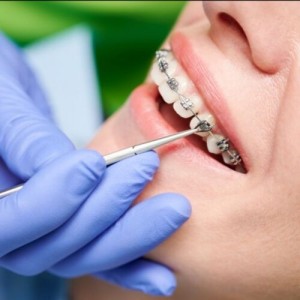
Fluoride supplementation during pregnancy: is it effective in preventing dental caries in children?
Alessandra Abbà
Dental caries in infants and children is one of the most prevalent dental problems of this period with 50% of children have one or more decayed primary teeth by the end of toddler age. Their manifestations can range from demineralization to loss of tooth structure or complete destruction of the crown.
Consequences related to this condition may involve permanent dentition with an increased risk of dental caries in permanent teeth and even disease related to their eruption.
Genetic predisposition, poor hygiene habits, bad eating habits with excessive sugar consumption, the presence of organisms like streptococci and many other factors are the main responsible of dental caries. Even fluoride and vitamin d can play a decisive role in the etiopathology. Fluoride supplementation for women during pregnancy may be an effective way to increase fluoride intake and to prevent dental caries in the primary teeth of their children.
The aim of this study is to compare the effects of fluoride supplements (tablets, drops, lozenges or chewing gum) with no fluoride supplements during pregnancy.
Search methods: the following databases have been surveyed: Cochrane Oral Health's Trials Register; the Cochrane Central Register of Controlled Trials in the Cochrane Library; MEDLINE Ovid; Embase Ovid; LILACS BIREME Virtual Health Library; and CINAHL EBSCO. Randomized controlled trials (RCTs) of fluoride supplements administered to women during pregnancy were selected for the study.
Results: Only one RCT met the inclusion criteria for this review.
-at 3 years old: no statistical difference on decayed or filled primary tooth surfaces (risk ratio (RR) 1.46, 95% confidence interval (CI) 0.75 to 2.85; participants = 938, very low quality of evidence)
- at 5 years old: no statistical difference on decayed or filled primary tooth surfaces (RR 0.84, 95% CI 0.53 to 1.33; participants = 798, very low quality of evidence). The incidence of fluorosis at 5 years was similar between the group taking fluoride supplements and the placebo group.
Conclusions: there is no evidence that fluoride supplements taken by women during pregnancy are effective in preventing dental caries but further studied are needed mainly in those areas where children are at higher risk.
Fluoride supplementation (with tablets, drops, lozenges or chewing gum) in pregnant women for preventing dental caries in the primary teeth of their children https://www.ncbi.nlm.nih.gov/pmc/articles/PMC6485723/
 Related articles
Related articles
Dental decay is the most common chronic disease of children and it disproportionately affects those living in poverty, but the reasons for this are not clear. Passive smoking may be a modifiable risk...
Oral Hygiene & Prevention 20 August 2025
Personal oral hygiene and dental caries: A systematic review of randomised controlled trials
To conduct a systematic review of randomised trials assessing the association between personal oral hygiene and dental caries in the absence of the confounding effects of fluoride.
Pediatric dentistry 08 April 2025
Oral rehabilitation in pediatric dentistry: a clinical case report
Despite the emphasis and effort devoted to preventive dentistry, massive coronal destruction caused by dental caries or trauma is still seen in pediatric dentistry practice today.
Oral Hygiene & Prevention 15 January 2025
The aim of this study was to assess the influence of dietary and hygiene habits on the prevalence and intensity of dental caries.
Those who have had surgical obesity treatment have a higher risk of dental caries than before surgery. They also often experience a general decline in oral health. This has been shown by a thesis...
 Read more
Read more
Restorative dentistry 13 February 2026
Integrating Laser Technology with CAD/CAM for Advanced Smile Design in Dentistry
This study aimed to evaluate the effectiveness of integrating laser treatment with CAD/CAM systems in restoring dental function and aesthetics in a 35-year-old male patient suffering from bruxism.
Editorials 13 February 2026
The SRG is UFCD’s student‑run chapter of the American Association for Dental, Oral and Craniofacial Research, or AADOCR.
Products 13 February 2026
Parkview Dental, a leading Dental Support Organization committed to providing comprehensive management services to dental practices, announced the appointment of Lisa Burris as its new Director of...
News 13 February 2026
DentaQuest, part of Sun Life U.S., recently announced the appointment of Dr. Ronke Ogunbameru as dental director for Texas, where the organization covers more than 1.4 million Medicaid and CHIP...
News 13 February 2026
Unlock CE Credits by Reading One Move Makes All the Difference
Dental professionals can now earn 4 hours of continuing education credit by reading One Move Makes All the Difference by Martin R. Mendelson, DDS, FIADFE, CPC. Dr. Mendelson and Metamorphosis...














